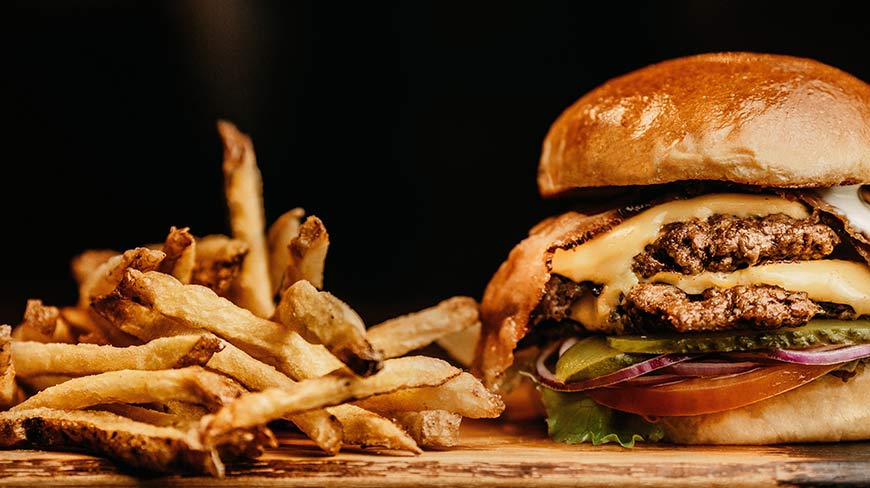7 Bad Eating Habits That Cause Indigestion, Acid Reflux and Stomach Bloating
Nothing ruins a nice evening out like a queasy, burning, bloated, or need-to-burp feeling after an enjoyable dinner. Especially if you thought you made healthy choices. So what went wrong? And more importantly, how can you avoid the discomfort next time?
Too many carbohydrates and sugars
Most foods with carbohydrates will cause gas and some bloating. In general, carbohydrates like sugar and fiber are fermented as they’re broken down in your large intestine. The process creates a buildup of gas in your colon, causing that bloating that is so uncomfortable.
Even healthy foods can contain carbs, like some fruits, vegetables, grains, and dairy products. So, while making healthy choices, you may still find yourself experiencing some unexpected gas and bloating afterwards.
And then, of course, there’s lactose, the sugar in dairy that makes it difficult for most of the population to digest it. People with lactose intolerance develop gas, bloating, and discomfort after eating dairy foods.
Sugar substitutes
Even food labeled “sugar-free” can cause a gassy reaction while digesting. Sugar alcohols, like xylitol, sorbitol, and mannitol are low-calorie sweeteners used to make certain sugar-free foods. Although they are low in calories, they do still come with some of the side effects of true sugars. They tend to cause gas and other intestinal symptoms due to the fact that we can’t easily absorb them.
Carbonated Beverages (beer and soda)
Soda or beer may be a treat when you go out, but the bubbles don’t do you any favors. The bubbles that give soda that cheery fizz are filled with carbon dioxide. That’s what makes you burp. And any gas that you don’t burp out ends up in your intestines, causing bloat. Like soda, beer is carbonated but it also contains fermentable carbs from the grains used to brew it, making beer a double whammy for its bloat factor.
Large meals
Large meals stretch your stomach, which not only makes you feel full and bloated, but also puts pressure on the lower esophageal sphincter (LES). The LES is the muscle that opens and closes to allow food to move down into your stomach. Too much pressure on the LES can cause it to open, allowing stomach contents to leak back up into the esophagus. The stomach acid that leaks up causes heartburn.
Eating late at night or laying down after eating
Taking a nap after a filling meal may sound tempting but can also cause acid reflux. Especially if you ate fatty foods. Laying down means you no longer have the benefit of gravity to help keep stomach contents in your stomach; they are more likely to leak up through your LES when you’re laying down. If you must lay down, laying on your left side or elevating your upper body can help keep your stomach contents where they belong.
Eating fatty or fried foods
Fatty foods are slower to digest and spend longer in your stomach than other foods. This triggers your stomach to make more acid. To make matters worse, fatty foods have a relaxing effect on your LES, making it more likely that some of that extra acid can leak up into your esophagus and give you heartburn.
Too much alcohol
Alcohol both triggers increased production of stomach acid and relaxes the LES, putting you at risk for heartburn. It also lowers your inhibitions, increasing your chances of making food choices that might not be in your digestive system’s best interest.
You don’t have to end an evening out with indigestion, heartburn, or bloating. Knowing your body and how it may react to certain food triggers is key to making the kind of choices that let you enjoy your food without fear.
If acid reflux or other digestive issues are impacting your quality of life, visit with one of our experts and schedule an appointment.


